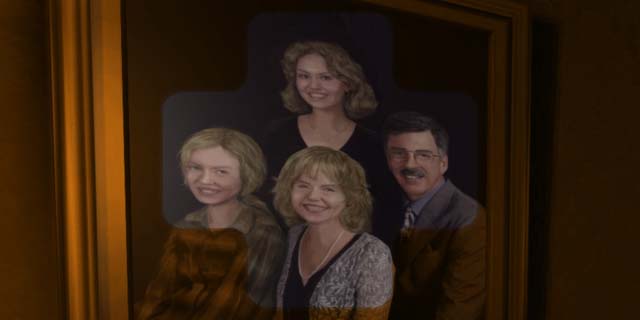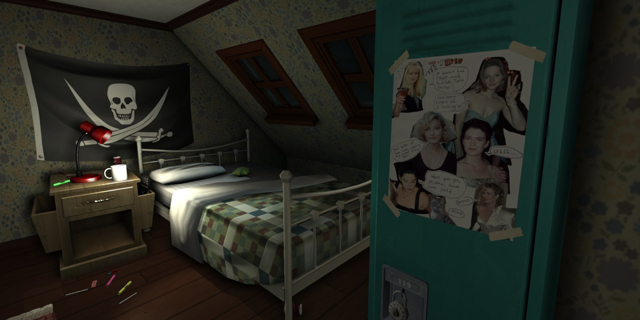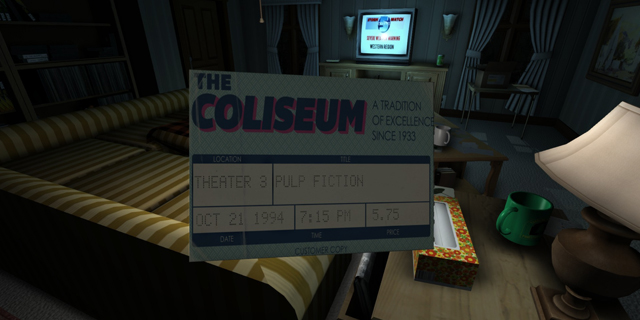
Video games give us a lot. They provide exciting, compelling gameplay experiences, amazing visuals, brilliant soundtracks, stunning worlds to explore, and so much more. The one thing games have become increasingly good at is telling a story. While I love titles such as Mass Effect, The Last of Us and The Witcher 2, the games that almost always hook me are the ones attempting to bring story to the forefront. Games such as The Walking Dead or the recent release, Gone Home, all provide excellent narratives that stand above and beyond their contemporaries.
Yet, so many people seem to reject these games, signaling that their success is the sign of a dramatic sea change in the industry which will forever take over and extensively ruin the games we all know and love today. This overdramatic (and frankly, ridiculous) notion makes me wonder just why so many are afraid of games that attempt something different. We all accept innovative titles in regards to gameplay mechanics, but in terms of simplifying gameplay for the sake of a story? It becomes a different conversation entirely.
Let’s talk about Gone Home, a narrative-driven first-person exploration game that has seen much success, both critically and financially, since its release back in August. It seemed to be loved by everyone and considered by many to be one of the best examples of storytelling in a video game. Even those I talked to who typically avoid games like this managed to check it out and, surprisingly enough, found it to be incredibly enjoyable. Yet, despite that initial burst of excitement and positivity, it seems wherever I go and the game is mentioned, there is disgust, or at least a lack of understanding about the game. Some people are even afraid it’s a sign that the games industry as we know it is going to change forever because of this one indie title. It’s a little silly, don’t you think?

Its success certainly isn’t going to signal a dynamic shift in the industry, but it does demonstrate just how you can make something different, even if it seems to forego many of the basic principles of what we consider games to be. Is it still a game? Of course it is, but it does so much with so little that this question continues to come up even after the mere mention of its name. What if all games suddenly copied Gone Home? It wouldn’t surprise me if we saw an influx of games similar to it, but even that might be unreasonable. Yet, those unable to grasp this seem to scream in terror whenever it is brought up.
So no, the industry isn’t going to radically change overnight because one narrative-heavy experience became a success. It will probably be discussed and dissected for years to come, but not every game is going to be as focused on telling a story as Gone Home is. It’s an irrational reaction based on nothing but hatred towards something because it dares to try something a little different than your average game and is successful at it.
It all comes back to the idea that Gone Home has “no gameplay.” This all goes back to a quote from former BioWare employee Jennifer Hepler. You may remember me mentioning it in a previous column all about the way we play games. She wanted more games to have an option to skip gameplay, or at least fast-forward it, so she would have more time to experience her favorite part of games: the story. I’ve talked about this already, so no need to rehash the details, yet that interview that led to her being harassed endlessly is, in my mind, connected to the reaction Gone Home is getting.

Sure, Gone Home does have gameplay, and the exploration is what makes it so memorable to begin with, yet it has so little in the way of mechanics that we are used to in most games. It is seen in the same vein as an RPG like Dragon Age potentially allowing you to skip or fast-forward gameplay just to experience the story. You have to have gameplay, or at least you have you have gameplay that more closely resembles what we consider gameplay. To allow the player to skip it or design a game so different that its validity as a game is in question is what many would consider something that could only hurt, not help the industry.
Change can be scary, especially when it involves something we treasure as much as this medium. Yet, this isn’t about change, it’s about allowing for more experiences. It’s about giving more people a chance to play games that may not appeal to me, you, or even people who proclaim Gone Home is the sign of a potential gaming apocalypse. There will continue to be games like Gone Home, Proteus and Dear Esther alongside the Grand Theft Auto and Call of Duty titles that continue to make millions. You don’t have to like them or play them, but their existence will only help provide better experiences to more players and give us a new ways to tell stories.
If this trend continues, then yes, the industry will change; the major difference is it will be for the better.



















